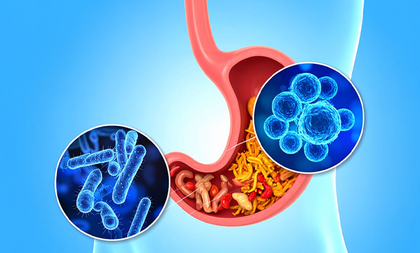A healthier gut may help improve depression and anxiety, says study
By IANS | Updated: October 11, 2025 11:20 IST2025-10-11T11:16:42+5:302025-10-11T11:20:16+5:30
New Delhi, Oct 11 Gut microbiome may hold the key to improving depression, anxiety and other mental health ...

A healthier gut may help improve depression and anxiety, says study
New Delhi, Oct 11 Gut microbiome may hold the key to improving depression, anxiety and other mental health conditions -- one of the world’s most pressing health challenges affecting nearly one in seven people globally, according to a study.
Researchers from the University of South Australia explored the connections between the gut and the brain to decipher their role in mental health and wellbeing.
They examined the growing evidence that the gut and the brain are deeply connected. Their findings, published in the journal Nature Mental Health, found the strongest proof yet that changes in a person’s gut microbiome can directly affect their brain chemistry.
“The gut–brain connection is one of the most exciting frontiers in mental health research,” said lead author Srinivas Kamath, a doctoral candidate at the varsity.
“We already know that the trillions of microbes in our digestive system talk to the brain through chemical and neural pathways, affecting our mood, stress levels, and even cognition.
“But the big question is whether changes in gut bacteria actually drive mental illness or mirror what’s happening elsewhere in the body,” Kamath said
The team's review of studies found strong causal evidence that gut microbes can change brain chemistry, stress responses, and behaviours in animal models, as well as disrupted gut patterns in conditions like depression and schizophrenia.
They also found that early trials of probiotics, diet changes, and faecal microbiota transplants help improve mood and anxiety, and psychiatric medications can change the microbiome, demonstrating the gut-brain connection.
Globally, mental health disorders affect nearly 970 million people, with depression and anxiety ranking among the leading causes of disability. Yet up to one-third of patients do not respond to current medications or therapies, highlighting the need for new and accessible treatments.
“If we can prove that gut bacteria play a direct role in mental illness, it could transform how we diagnose, treat, and even prevent these conditions,” said co-researcher Dr Paul Joyce.
“Microbiome-based therapies such as probiotics, prebiotics, or tailored diets may offer accessible, safer, low-cost, and culturally adaptable options that complement existing care,” Joyce added.
The researchers called for future studies to track gut changes over time and include more diverse, larger populations to better understand how diet, environment, and culture shape the gut-brain connection.
Disclaimer: This post has been auto-published from an agency feed without any modifications to the text and has not been reviewed by an editor
Open in app